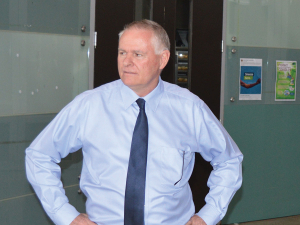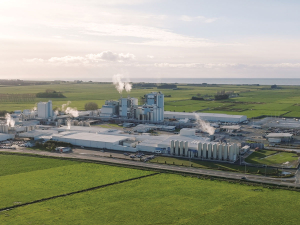The work is part of the Clearview Innovation programme which includes projects that will help farmers decide where on-farm to apply nutrients for maximum benefit and minimal loss.
"There is a definite shift towards regional councils requiring farmers to work within nutrient loss limits," says Ballance research and development manager, Warwick Catto.
"The work we have underway will help farmers decide exactly where on the farm would benefit most from nitrogen application, determined by different soils' response to it. It is a more targeted approach which means less nitrogen for more grass. What we want to do is increase nitrogen uptake efficiency from the usual 10:1 return to 15:1."
Catto says the work will also support highly targeted phosphate use.
"We know that for most farms, phosphate losses come from only 20% of the land area. With phosphate risk mapping, we can reduce those losses. That will enable 80% of the farm to gain from targeted phosphate applications and increase phosphate efficiency by 20%."
Ballance has contracts underway for $3 million of research under the Clearview programme, including spring field trials for nitrification inhibitors in the Waikato and Lower South Island.
Also being tested is improved biological controls for grass grubs which destroy pasture, with the economic cost to the pastoral sector estimated at some $90 million. The trials are testing an easier to use formulation of Ballance's Bioshield, which combines zeolite with a soil bacteria serratia entomophila.
Catto says feedback from the farming community is that the programme is right on the money, because everyone wants to produce more, but with fewer environmental impacts.
"There's a lot of enthusiasm out there and people are keen to see the results of the work. We've moved very quickly to get the programme underway and we should see the results from these first contracts flow through in about 18 months."
He says the research will not only develop more sustainable products, but should be sustainable in itself.
"As products come to market and generate new revenue they will also generate new funding for further research."










